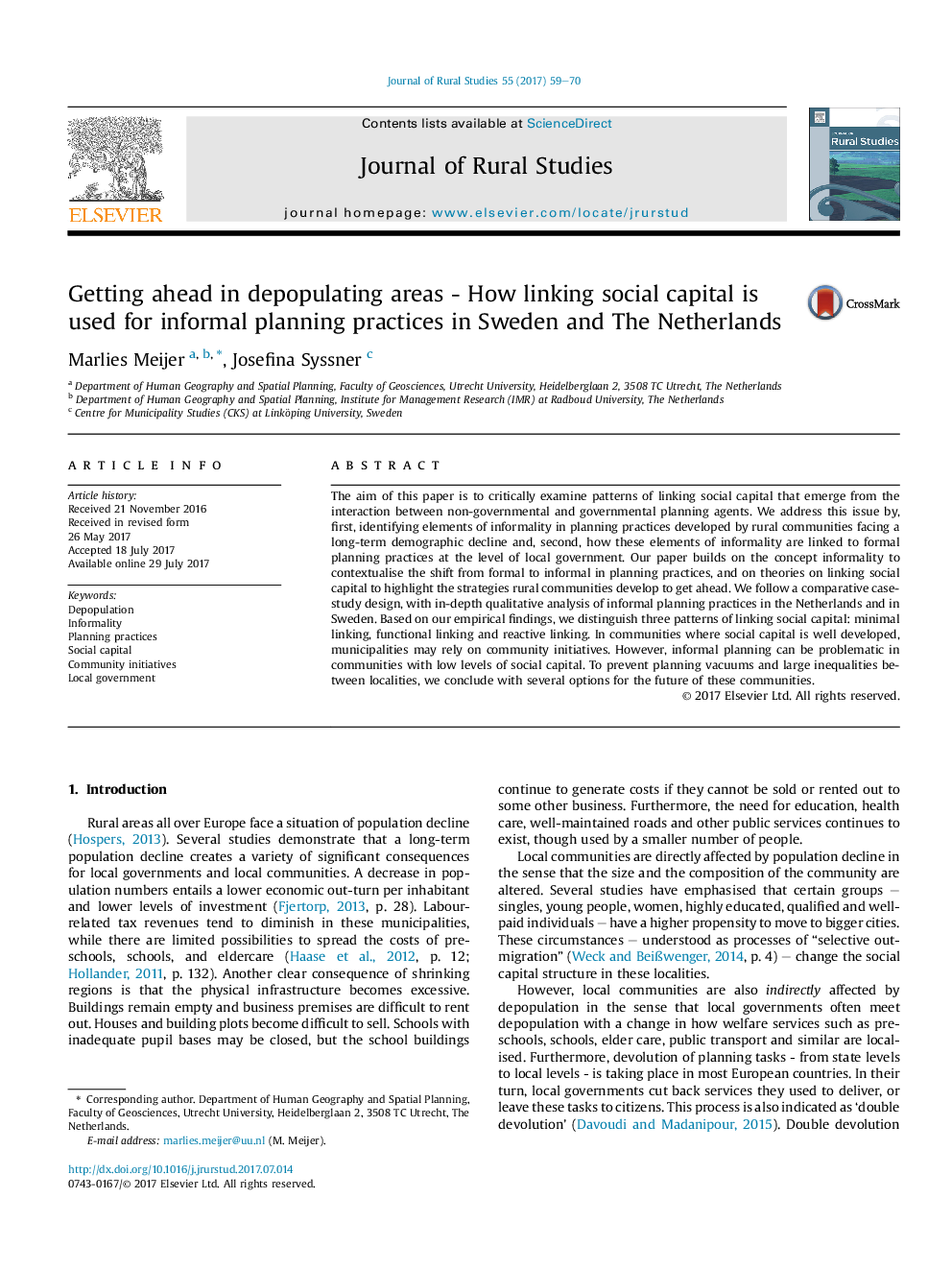| کد مقاله | کد نشریه | سال انتشار | مقاله انگلیسی | نسخه تمام متن |
|---|---|---|---|---|
| 6459932 | 1421776 | 2017 | 12 صفحه PDF | دانلود رایگان |
- Linking social capital is increasingly part of development strategies, performed by rural communities and encouraged by governments.
- Based on the analysis of strategies communities develop for support, we introduce a typology of three patterns of linking social capital.
- Relying on community initiatives is problematic in communities with low levels of social capital.
- The risk of minimal reaching out by local governments is that certain localities become underdeveloped.
The aim of this paper is to critically examine patterns of linking social capital that emerge from the interaction between non-governmental and governmental planning agents. We address this issue by, first, identifying elements of informality in planning practices developed by rural communities facing a long-term demographic decline and, second, how these elements of informality are linked to formal planning practices at the level of local government. Our paper builds on the concept informality to contextualise the shift from formal to informal in planning practices, and on theories on linking social capital to highlight the strategies rural communities develop to get ahead. We follow a comparative case-study design, with in-depth qualitative analysis of informal planning practices in the Netherlands and in Sweden. Based on our empirical findings, we distinguish three patterns of linking social capital: minimal linking, functional linking and reactive linking. In communities where social capital is well developed, municipalities may rely on community initiatives. However, informal planning can be problematic in communities with low levels of social capital. To prevent planning vacuums and large inequalities between localities, we conclude with several options for the future of these communities.
Journal: Journal of Rural Studies - Volume 55, October 2017, Pages 59-70
